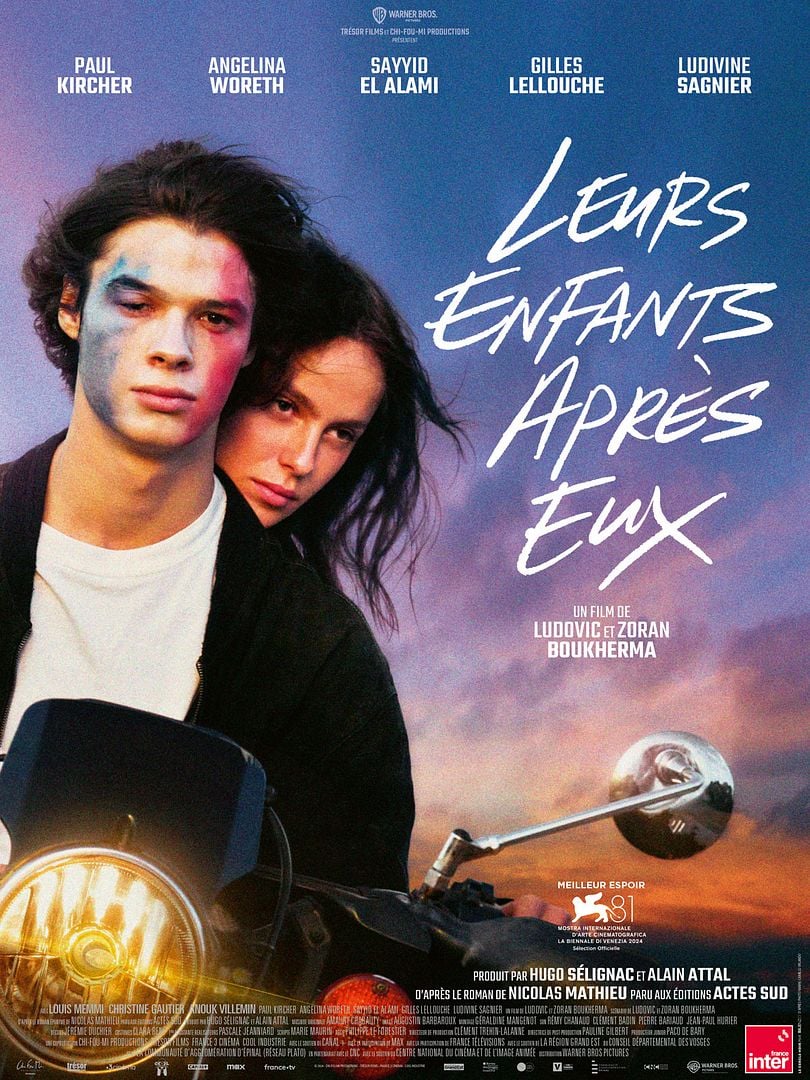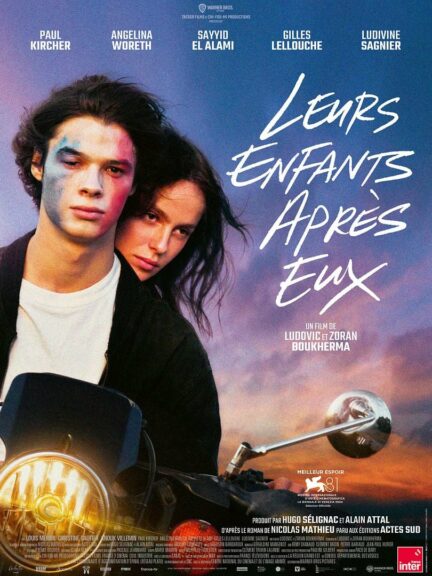
With: Paul Kircher, Angelina Woreth, Sayyid El Alami, Gilles Lellouche, Ludivine Sagnier, Anouk Villemin, Louis Memmi, Anaïs Demoustier, Louise Lehry, Christine Gautier
In eastern France, two teenage cousins have the summer of their lives when they paddle a purloined canoe to the far shore of a lake.
This fairly big-budget French production has many flaws that usually put us off and outweigh any other judgment. We could be tempted to compare it to the insipid and hollow (but technically valid) Beating Hearts. Yes, Their Children After Them would have everything to displease us, if we look at certain details: a mainstream style, a lead actor (Paul Kircher) without charisma or even displeasure, who totally detaches us from the character, popular, sometimes even franchouillard musical choices that remind us of the opening ceremony of the Olympic Games, a painful final scene, that seems to come out of nowhere – and at odds with the main thrust of the film, a sudden acceleration of the drama in the second third that just doesn’t take, anachronisms in the reconstruction of the period (an 8 6 beer, for example, lying around here and there, expressions that didn’t yet exist at the time, etc.). ..).
Yes, but here’s the thing: unlike Beating Hearts whose musical choices are good, but a little less mainstream), the big machine takes over. The sincerity of the gesture, but also its mastery, outweighs everything else. Very quickly, a very special atmosphere settles in, one of those few films that manage to move through the spectre of memory, of a child’s gaze, of the play that can be made around nostalgia, even melancholy, that manages to bring out a few beautiful moments from a seemingly sad landscape, Like Cinema Paradisio, Toto the Hero, In the mood for love, The myth of the american sleepover, Léolo, The 400 blows, to name just a few of the great successes that have used more or less the same recipe, in styles that can be diametrically opposed. These few films manage to transport us to a time that may be long gone, but which nonetheless resonates so much with the present, with the founding times, which are mainly concerned with transposing us into a universe that may seem familiar to us, with immersing us with the main characters not in a quest, but in a settled atmosphere, distinctive and evocative in itself of so many impasses, pains and broken destinies.
And their children after them settles in and quickly captivates us, with its soft imagery, melancholy shots, colorimetric quality and elegant camera movements and transitions, and perfect use of music to punctuate the story, even nourishing it with hidden meaning (we even find ourselves finding meaning in a Cabrel song!). Apart from Kircher, as we said, the film also seduces with its excellent casting: Gilles Lellouche, again very good in his role as a violent stepchild, Ludivine Sagnier very interesting as a slightly outdated protective mother, and the whole teenage cast. He finally mesmerizes us by setting this seemingly simple family story in a multi-dimensional territory, be it geographical (Epinal, the Vosges lakes), social (the suburbs, the working-class fringe but also the contrasting local bourgeoisie, the relationship to employment, the first waves of immigration and cohabitation), but also cinematic (the apprenticeship story, the bittersweet teenage film, the romantic fresco and the western!). This success is all the more astonishing given that the Zoukherma brothers had seduced some of us (we were divided) in a very different style, with Teddy, and that the connection between the two films is not the most immediate …

